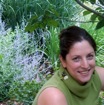
SNRE Student Government Representatives
SNRE Student Government is lead by representatives elected by the students of the School. Representatives are elected for one year terms in alternating academic terms.



A dual-degree student between the School of Natural Resources and the Ross School of Business, Sarah's primary focus is related to Corporate Social Responsibility, and the ways in which non-profits, NGOs, and corporations can work synergistically to reduce the ecological footprint of business practices while simultaneously improving the quality of the social environments in which they operate. Sarah has spent time working on issues of human-wildlife conflict in both Kenya and Zambia; in Kenya, she collaborated with local academics and community members, researching and developing an integrated land and water-use plan combining sustainable agricultural and pastoral practices with the creation of protected areas for wild game. In Zambia, Sarah worked with farmers to mitigate human-elephant conflict and improve their economic well-being by using chili peppers as a natural wildlife deterrent and sustainable cash crop. Sarah has also volunteered with the US Fish & Wildlife Service in her home state of Rhode Island, and was selected as a Doris Duke Conservation Fellow in 2005. Sarah graduated with honors from Harvard University in 2002, and holds a B.A. in Biological Anthropology. Email Sarah.
Sarah Hines
President



About Us
A dual-degree student between the school of Natural Resources and the Ross School of Business, Doug is interested in strategies to internalize the costs associated with climate change into financing decisions. Doug is a native of Detroit, Michigan and graduated from Trinity College in Connecticut in 2000 with a B.A. in Political Science. As an undergraduate, he spent several months in the Middle East, and conducted research for his honors thesis on nuclear, chemical and biological terrorism. Following graduation, Doug was an English teacher in Xi’an, China.
Upon his return to the U.S., he began his career in politics as the Director of Special Projects on the Campaign for a Ballot Initiative supporting funding for the Arts in the Detroit Area. From 2001 – 2004, he worked as a Congressional Aide in the office of Senator Levin (D-MI), where he represented the Senator on Agriculture, Energy and Environmental issues. This most recent summer Doug worked in New York for Swiss RE on corporate climate change strategies. Email Doug
Doug Glancy
Kerry Duggan
RPB Master's student Kerry Duggan is interested in cross-sector collaboration as a strategy to forward natural resource policy in Michigan. Through her Master's Project, she has worked with non-governmental organizations, communities, corporate and governmental leaders toward a vision for planning for the strategic redevelopment of downtown Detroit.
As an student in the Environmental Justice subplan, her interests include articulating the wisdom from the margins of society into the environmental policy process as means to realizing truly representative policy goals. Kerry has worked for several statewide NGOs, including the Michigan League of Conservation Voters, Michigan Environmental Council and Sierra Club. During her 2006 summer, she worked for the national League of Conservation Voters. Email Kerry.




Katherine Foo
REM Master's student Daniel Fishman is interested in the interconnection between the health of aquatic ecosystems and onshore or upstream disturbances. A California native, in 2003 Daniel received his B.S. in Environmental Systems while focusing on ecology and evolutionary biology at the University of California, San Diego. After graduating, Daniel spent six months at the University of Queensland, Australia pursuing a Graduate Certificate in tropical conservation biology. Now, as a student in the Aquatic Ecosystems subplan, his thesis research focuses on understanding the implications of major anthropogenic disturbances, such as pollution, nutrient enrichment and controls, and the introduction of exotic species, to the ecosystems of the Great Lakes. Working with NOAA and the USGS, Daniel is currently involved in describing the state of the lower trophic levels of Saginaw Bay, Lake Huron before and after the establishment of zebra mussels. This involves combining traditional analysis methods with both GIS techniques and ecosystem modeling. Email Dan.
As an MLA (Master of Landscape Architecture) Master's candidate, KFoo is primarily interested in urban ecological design, community development, and community-based conservation. From her experiences living abroad, she learned that local management of ecosystems and design of landscapes are critical for identifying and pursuing "sustainable" development. In northeastern Thailand KFoo worked for an engaged Buddhist organization, and she collaborated with NGOs and citizens displaced by three large-scale dams to construct an eco-village of adobe brick houses and community center in Chaiyaphum province. She has also studied strawbale building near Taos, New Mexico; worked with a local NGO to develop a multi-sector social-service response to domestic violence in San Cristobal, Guatemala; surveyed residents in the Poyang Lake basin about risks of vulnerability to flooding in Jiangxi, China; and conducted a case study of the implementation of a landmark law that decentralized political power and economic funds near Cochabamba, Bolivia. KFoo graduated with honors from Williams College and holds a B.A. in Poverty Studies. She is currently conducting research about contamination, risk perception, and information provision in rebuilding St. Bernard Parish, LA. For this project, KFoo spent the summer surveying residents and will create design guidelines as part of a citizen's handbook for addressing industrial pollution in St. Bernard Parish. Email Kfoo

Daniel Fishman